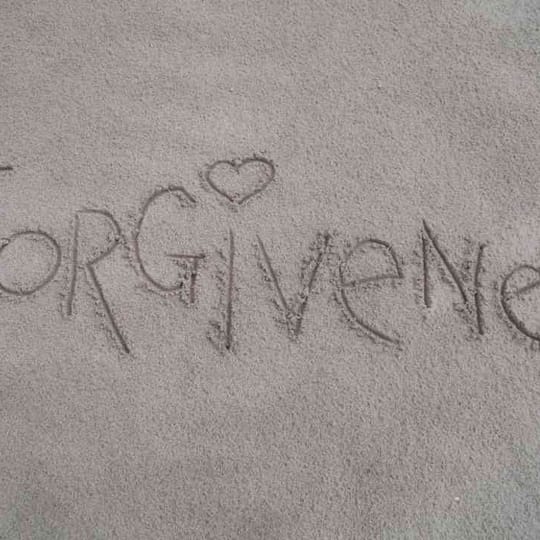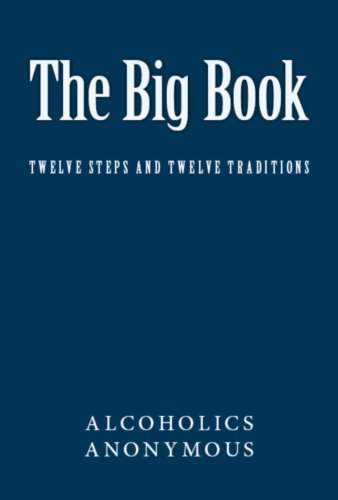
"Now That's Interesting" - The Crack That Lets the Light In
Abstract
A senior monk and a junior monk were traveling together. At one point, they came to a river with a strong current. As the monks were preparing to cross the river, they saw a very young and beautiful woman also attempting to cross. The young woman asked if they could help her cross to the other side.
The two monks glanced at one another because they had taken vows not to touch a woman.
Then, without a word, the older monk picked up the woman, carried her across the river, placed her gently on the other side, and carried on his journey.
The younger monk couldn’t believe what had just happened. After rejoining his companion, he was speechless, and an hour passed without a word between them.
Two more hours passed, then three, and finally the younger monk could no longer contain himself and he and blurted out “As monks, we are not permitted a woman, how could you then carry that woman on your shoulders?”
The older monk looked at him and replied, “Brother, I set her down on the other side of the river. Why are you still carrying her?”
Key Takeaways
- Forgiveness is the peace and understanding that comes with blaming less, taking your life experience less personally, and seeing the cost of holding a grudge.
- A person's behavior or choices in any given moment, good or bad, is but a sliver of the concatenation of events (prior causes) in that person's life that over time pave the road, inexorably, to that bad choice or behavior.
- The ability to be curious and interested in how that behavior or choice came to be in the story of someone's life (prompted by the phrase Now That's Interesting") is the crack that lets the healing light into your soul.
- Forgiveness is for you, and not for the person who hurt you, which means you become part of the solution.
- Forgiveness does not mean condoning the actions that hurt you, and it doesn't mean ignoring your feelings.
- Forgiveness is a choice, and the choice to forgive is the key that opens the locked mental gate that releases the recurrent stories and resentment for the start of mental freedom.
- Forgiveness changes your mental channel from being the victim to being the hero of the story.
- Forgiveness applies to interpersonal (another person hurt you), intrapersonal (you did something that hurt you like me ending up in rehab), or existential (the world, nature, or God) transgressions.
- We all want to be forgiven.
A Story and Some Thoughts
Twelve years ago, I was in my dorm bedroom, sitting on the bed, cross-legged, in the drug rehab center Hazelden, in the middle of f***ing nowhere in Minnesota, in the dead of winter, in the first month of my 3-month prison-like sentence for prescription narcotic addiction. A copy of the book Alcoholics Anonymous sits on the bed, staring at me, taunting me to open it.
Hazelden is a reeducation camp that steers lost souls into the catacombs of the Alcoholics Anonymous 12-step program.
I, of course, am not an alcoholic. I drink wine and always stop at two glasses, unlike my mother, who drank until she was in bed, dying of starvation or trying to commit suicide.
I was more of a pristine human addicted to narcotics, never plagued by the often dreadful behavior of alcoholics, chronicled so well in the Big Book, the bible of Alcoholics Anonymous.
The Big Book. My counselor strongly encouraged me to read the Big Book. Not being an alcoholic, I refused. The blue cover with the embossed words Alcoholics Anonymous triggered disgust. My days were spent walking around the rehab prison in a thick mist of resentment toward all of the alcoholics in my midst.

The crack that let a bit of light into my ossified perspective came during one of our daily group sessions. The counselor read a story about an alcoholic, sober for 25 years, who retires from work and thinks that he has earned the right to drink like other men. So he puts on his carpet slippers, grabs the bottle, and two months later ends up in the hospital. The dark humor of him slipping up with his slippers on made me curious.
That night, while the rest of my fellow inmates were watching TV in the commons safely out of view, I cracked open the Big Book in my room and started reading the stories.
When I read the story about a daughter's forgiveness of her father for all of his miserable behavior when he was drunk, a sudden tectonic shift came over me, a second-order change. In an instant, the handcuffs of resentment and anger toward my mother came off, and I saw my mother for what she really was: a human being, a woman, struggling like all of us, who did her best to play the game of life with the shitty deck of cards dealt to her existence.
Until that moment, I hated her. I hated her for the Ingmar Bergman-like darkness of my childhood, for her repeated relapses, for the grotesque suicide attempts, all of which set up a story loop in my mind that played over and over, for 50 years, like a needle stuck in the groove of a record – “how could she have done this to me?”
The tsunami of her life washed over me, and the fact that I, too, had succumbed to a substance, just like her, smashed the calcifications around my heart. A deep sadness and a longing to talk to her overwhelmed me. I missed her, a lot.
For the first time in my life, her life became interesting to me.
Now I see a woman, born in 1920, from Norway, growing up with a stern divorced Norwegian mother and 2 siblings, poor, young, and pretty, married and divorced after having a child that was severely mentally impaired and institutionalized, living alone - a lonely smart woman working as a waitress who, in 1954 had an affair with her married boss who had 3 kids.
And I see a 35-year-old pregnant woman alone in an apartment, and when her illegitimate son – me – was born, forced to live with her cold, stern Norwegian mother, forced to lie that her "husband" had died of throat cancer, and working 2 waitress jobs to support the three of us.
There is a phrase that I picked up from Raoul Pal, the legendary macro investing guru: "Now That's Interesting." Raoul is one of the most open-minded and curious people I have ever seen, which is why the phrase pours out of his mouth so often.
Raoul does this even when his thinking is challenged by someone who is critical or strident about a viewpoint that is diametrically opposed to his. Raoul never criticizes or judges anyone. He has strong views, but one never feels a sense of zealotry or judgment. His mind is capacious and curious.
To say the words “Now That’s Interesting,” especially out loud, puts the brakes on any snap judgments and constriction, and it is a magic key that can open the door of your mind to understanding and curiosity. And the wider the door opens, the better the understanding.
By taking the time and investing the mental effort to understand why things are the way they are, you give yourself the best shot at making a judgment grounded in understanding rather than from snap reactivity or from your past subconscious associations creeping up from behind and slapping the handcuffs on your perceptions.

“Now That’s Interesting” points the spotlight of compassion and understanding on a fellow human being and fellow traveler on this winding and bumpy path of life.
The compassion and understanding that can come from “Now That’s Interesting” accomplishes three critical things.
First, it throws water on the fires of our resentments and anger and opens the gate to forgiveness. Many of us cling to our fears, doubts, self-loathing, or hatred because there is a certain distorted security in familiar pain. It seems safer to embrace what we know than to let go of it for fear of the unknown. But as Saint Augustine said, “Resentment is like drinking poison and waiting for the other person to die.” The antidote to this poison is compassion. But there is a nuance – it doesn’t make the pain go away. I still have pain when I think of those horrible times as a child, but without the constriction, resentment, and hatred that I carried around for so many years.
I was honored to have Dr. Fred Luskin, director of the Stanford University Forgiveness Project, on The Resilient Surgeon podcast to talk about forgiveness. I have summarized key points from his work above, but the biggest takeaway is that forgiveness is not about condoning the actions of someone (or yourself), it is for you, the one suffering, so you can release the poison under your mental skin so you can heal the wound, finally, and move on in your life unfettered by the thick chains of resentment and anger.
The second benefit of “Now That’s Interesting” is its profound ability to influence someone to change. When someone senses another's resentment and anger (even if it is not overt we humans can smell it) it alienates them and often leads to their “justified” resentment for being judged and not understood, all feeding the downward spiral of separation. The best path to potentially influence a fellow traveler is to drop your judgments at the door and work to really see and understanding them, and once that fertile soil of connection is present, a seed of change can be planted, all while putting up your own very clear fence or boundaries of what you are willing to tolerate in this mutual garden. Simple, not easy, but so worth it.
One of the best and most extreme examples of the power of understanding is demonstrated in the documentary White Right: Meeting the Enemy, by the Norwegian filmmaker Deeyah Kahn. Ms. Kahn is a Muslim woman born to an Afgan mother and a Pakistani father who sits down face-to-face with neo-Nazis and white nationalists in the United States after receiving death threats and racially-charged hate mail as a result of giving a BBC TV interview advocating diversity and multiculturalism. To hear the backstory of this incredible film I highly recommend listening to her interview on the Making Sense podcast.
The third benefit of “Now That’s Interesting” is highlighted by the Navy Seal Jocko Willink - to avoid the authoritarian mindset. As he says: “Why do we get pulled towards the authoritarian monster that lurks inside of all of us humans? We get pulled towards that authoritarian mindset because it seems easier. It seems easier to say shut up and do what I told you to do. It seems easier to say no, I’m not going to listen to that piece of information. It seems easier to do that. It seems like the right move.”
It is easier, in the moment. It seems effective. It seems like action. It seems powerful. It seems like you are in control.
But “it seems” is a ghost, an illusion. It is the easy way out of a hard situation.
Incorporate the phrase “Now that’s interesting” as one of your mental habits.
You might find it interesting.
